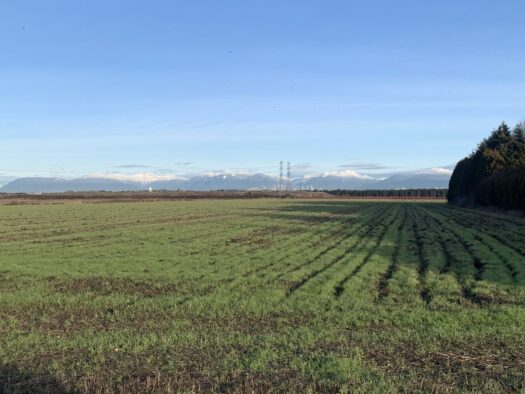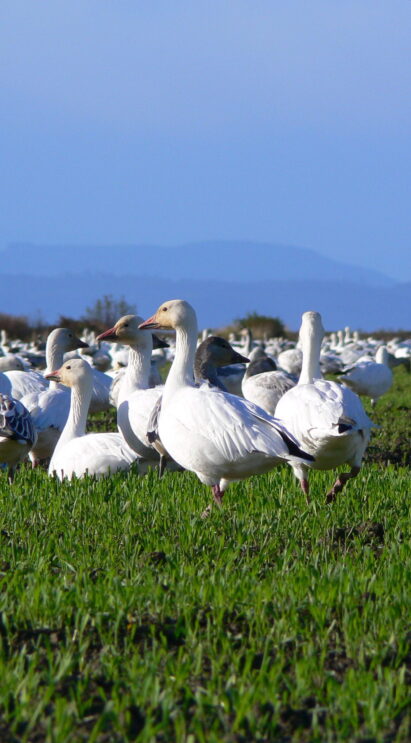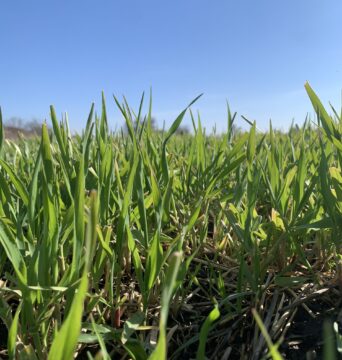Biodiverse Ecosystems on Farmland Benefit us All
Ecosystem services are the positive benefits that humans gain from nature – from the scenic views and feeling of well-being we experience during a walk in the countryside, to the food, clean air and water provided by plant life.
Agriculture is both an important provider and user of
ecosystem services. Healthy soils produce food for us all. Cover crops, set-aside and perennial grass fields store carbon within the soil, helping to mitigate climate change. Pollinators, such as those nurtured in hedgerows and wildflower margins, pollinate one out of every three mouthfuls of our food.

When farmers build and protect biodiverse ecosystems on their farmland, they are providing ecosystem services that benefit us all. Sustainably managed farmland can also provide:
- Water filtration
- Erosion control
- Flood management
- Long-term soil fertility
- Pest control
- Wildlife habitat and species conservation
In turn, biodiverse ecosystems can increase farm productivity by:
- Adding nutrients and supporting microorganisms in the soil
- Increasing long-term crop yields
- Improving soil structure
- Reducing soil erosion
- Increasing rainwater infiltration
- Capturing nutrients in the soil that might otherwise leach out with flooding or pooling water
- Increasing pollination
- Reducing crop damage from pests and the amount of insecticide required for pest control

Biodiversity increases the resilience of our food supply
The more diverse an ecosystem is, the more resilient it is. An ecosystem built on interactions between a large selection of diverse species can suffer negative effects from things like shifting climate patterns, disease, pollution, and predation without collapsing entirely.
For example, in an ecosystem containing dozens of species of wild bees, if one species contracts a parasite and becomes extinct locally, the local flowers will still be pollinated by other bees. Wildlife and farmers who rely on those pollinated plants for food and income will still be supported.

DFWT works with farmers to create solutions that reach beyond the fields
When farmers invest in the sustainable practices that result in healthy, diverse ecosystems, they are creating solutions to some of today’s most pressing environmental issues: food security, biodiversity loss, and climate change.
That’s why Delta Farmland and Wildlife Trust (DFWT) invests with them, through research, programs and funding. We know that it is critical to preserve and sustain local farmland not just for the food it puts on our tables today, but for the solutions it offers future generations.
How Can You Help?
Your donation will work towards conserving important farmland and wildlife resources contained in the Fraser River delta.
